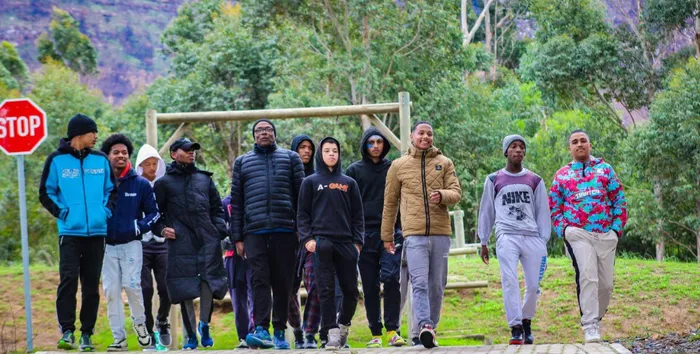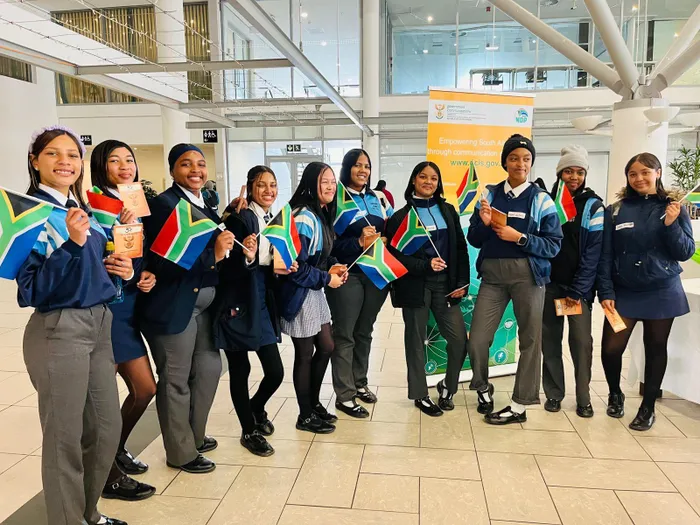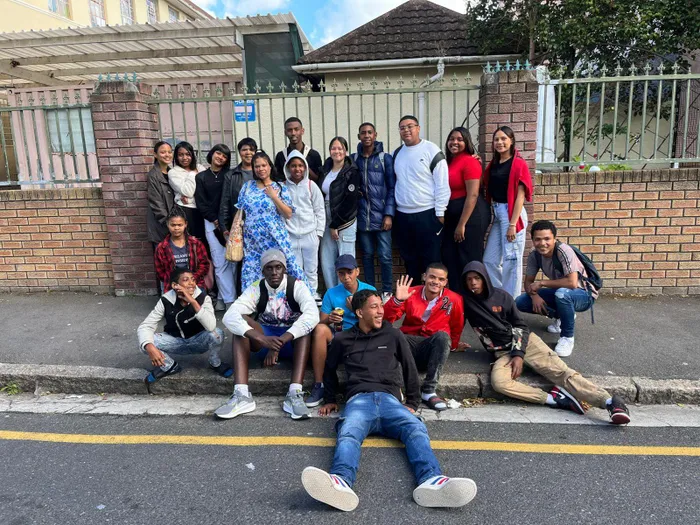Tafelsig High pupils lead the way in youth-led anti-violence programme

Tyrone Parks walks with Boys Club pupils from Tafelsig High, part of a partnership-driven programme creating safe, supportive spaces to help pupils overcome daily pressures and build resilience.
Image: Supplied
A partnership-driven Boys and Girls Club programme was launched at Tafelsig High, where pupils were able to co-design an anti-violence programme for all Grade 8 pupils, culminating in a youth-written anti-bullying pledge.
The programme provides safe, structured spaces for pupils and was designed by mentor Tyrone Parks, who said the goal was to create reliable, healing environments for pupils facing daily pressures.
The initiative is run in collaboration with the Western Cape Education Department’s Safe Schools Programme, Justice Desk Africa, and MOSAIC Training, Service and Healing Centre.
“They shaped an anti-violence programme, they led it, and they owned it. That’s real leadership emerging,” Mr Parks said.
The Boys Club and Girls Club formed the backbone of the approach. Thirty boys met weekly to explore human rights, gender justice, conflict resolution, and emotional resilience, while fifteen girls took part in sessions on identity, self-worth, healthy relationships, and leadership.
According to Mr Parks, these clubs quickly became one of the few stabilising elements in pupils’ lives.
“We needed safe, predictable spaces where pupils could talk, think, and grow without fear,” he said.
“This pilot has worked. Clubs like these should exist across this community. What we need now is adult courage to support what is already proving effective,” he said.

Tafelsig High pupils attended a Women's Day programme.
Image: Supplied
Tafelsig High principal William Swartz said the programme “has been an eye-opener for pupils, teachers, and parents. It builds resilience, keeps pupils engaged, and provides positive role models."
"Many of our pupils come from challenging backgrounds, and initiatives like this give them guidance, structure, and hope for the future,” he said.
Cameron Du Toit, Safe Schools fieldworker, said the initiative “helps pupils improve confidence, discipline, and engagement while providing guidance and leadership skills. It also encourages them to make positive choices, understand their rights, and take responsibility for their actions both at school and in the wider community.”
Mr Parks said these organisations “attacked violence at its roots” by providing expert guidance.
A pupil, Jermaine De Vlam, Grade 8, said, “We learnt a lot about discipline and went to different places, learning about gender-based violence and how to protect and respect one another.”
Safe Schools offered advice on school safety and psychosocial support, Justice Desk Africa strengthened leadership through its iNtsika yaThemba and Mbokodo programmes, and MOSAIC’s Imbeleko Programme brought therapeutic support and gender-equality education into the school environment, he said.
"Ending violence starts with men and boys. Let’s dismantle harmful norms, teach empathy, and create safe spaces. I commit to living non-violently - toward others and myself,” said Mr Parks.

Pupils who participated at the Justice Desk Africa Saturday session.
Image: Supplied
Even school holidays, which Mr Parks described as the “highest-risk time for youth,” were filled with beach clean-ups, eco-literacy excursions, mental-health support, and leadership sessions.
These were deliberate prevention strategies, not recreational outings.